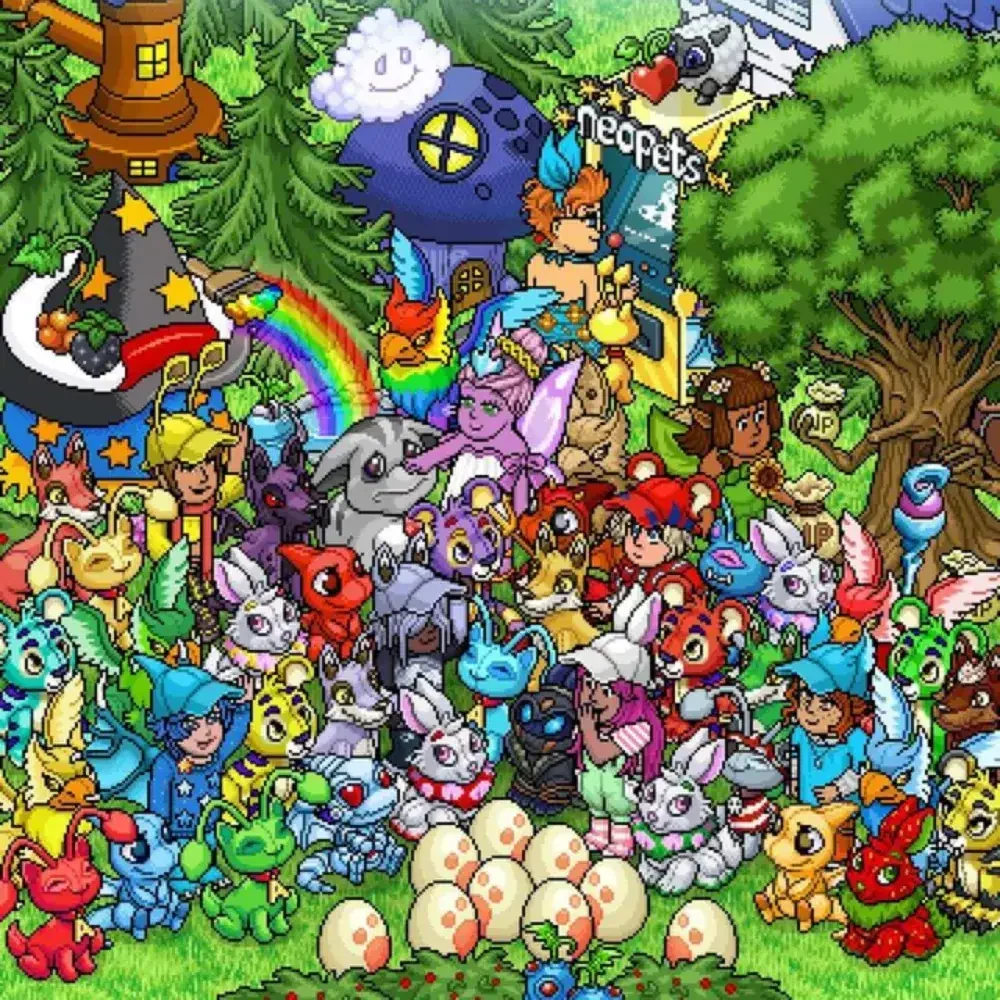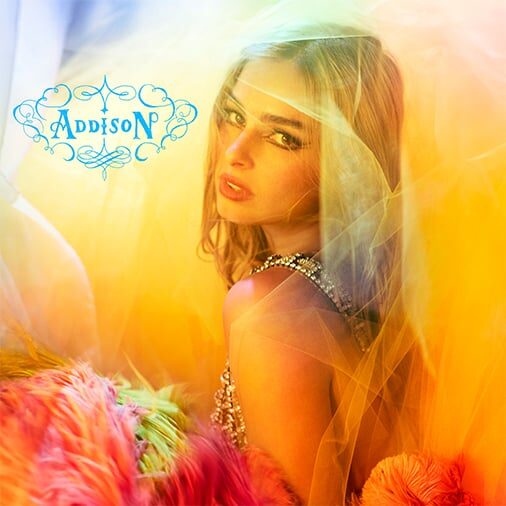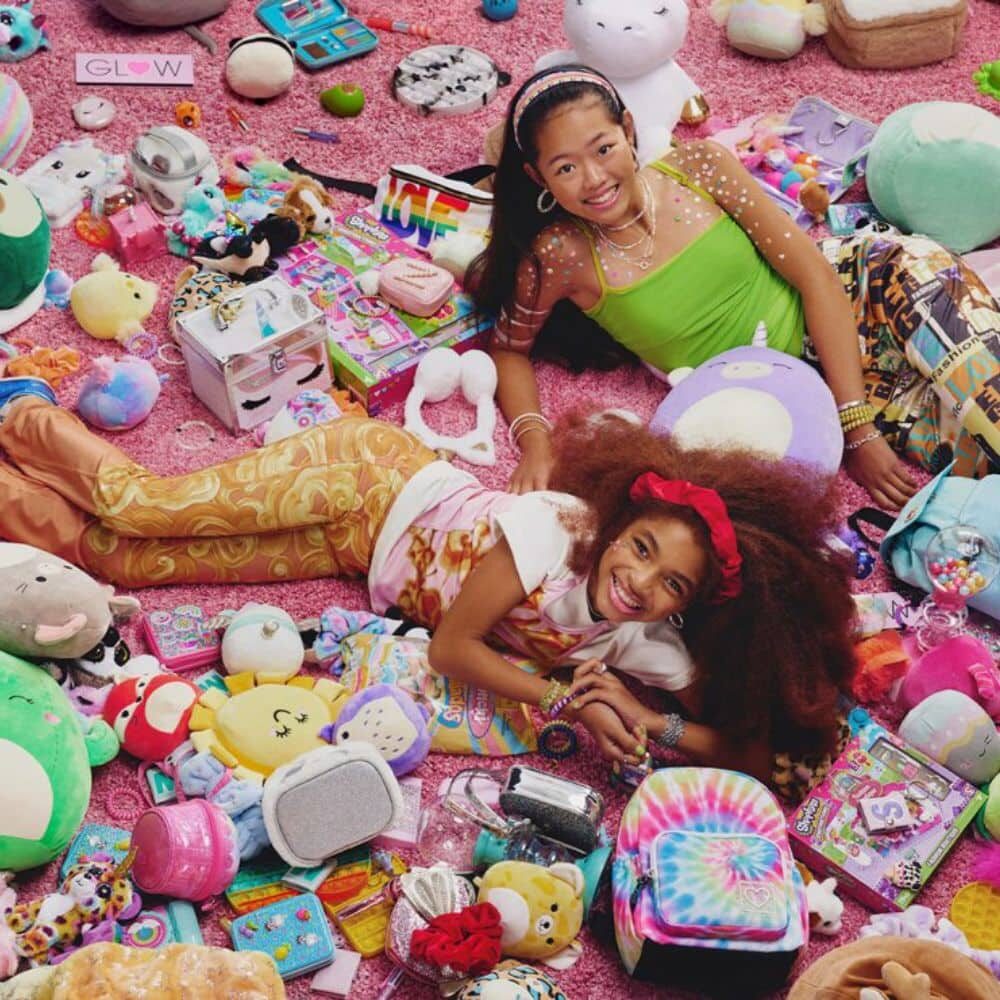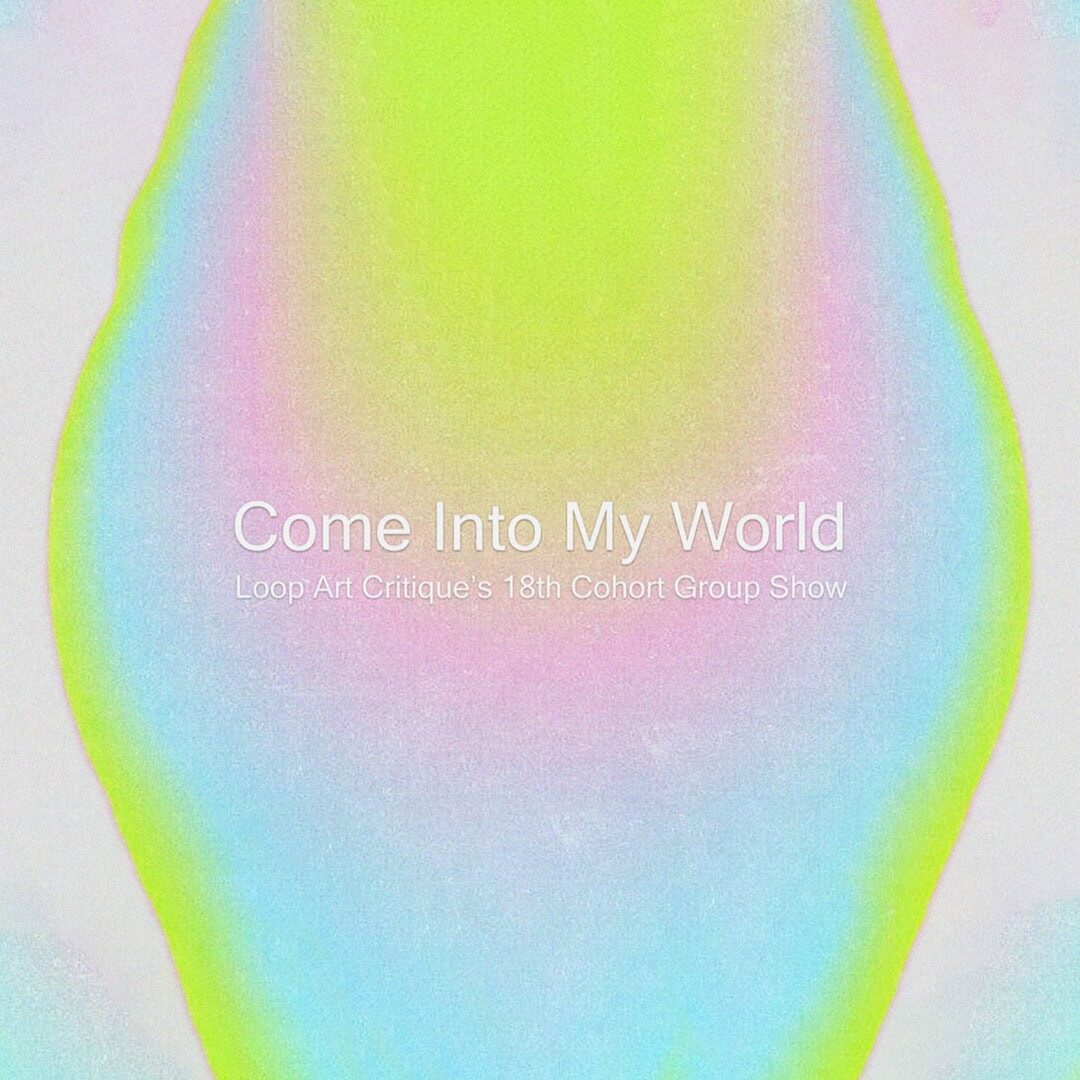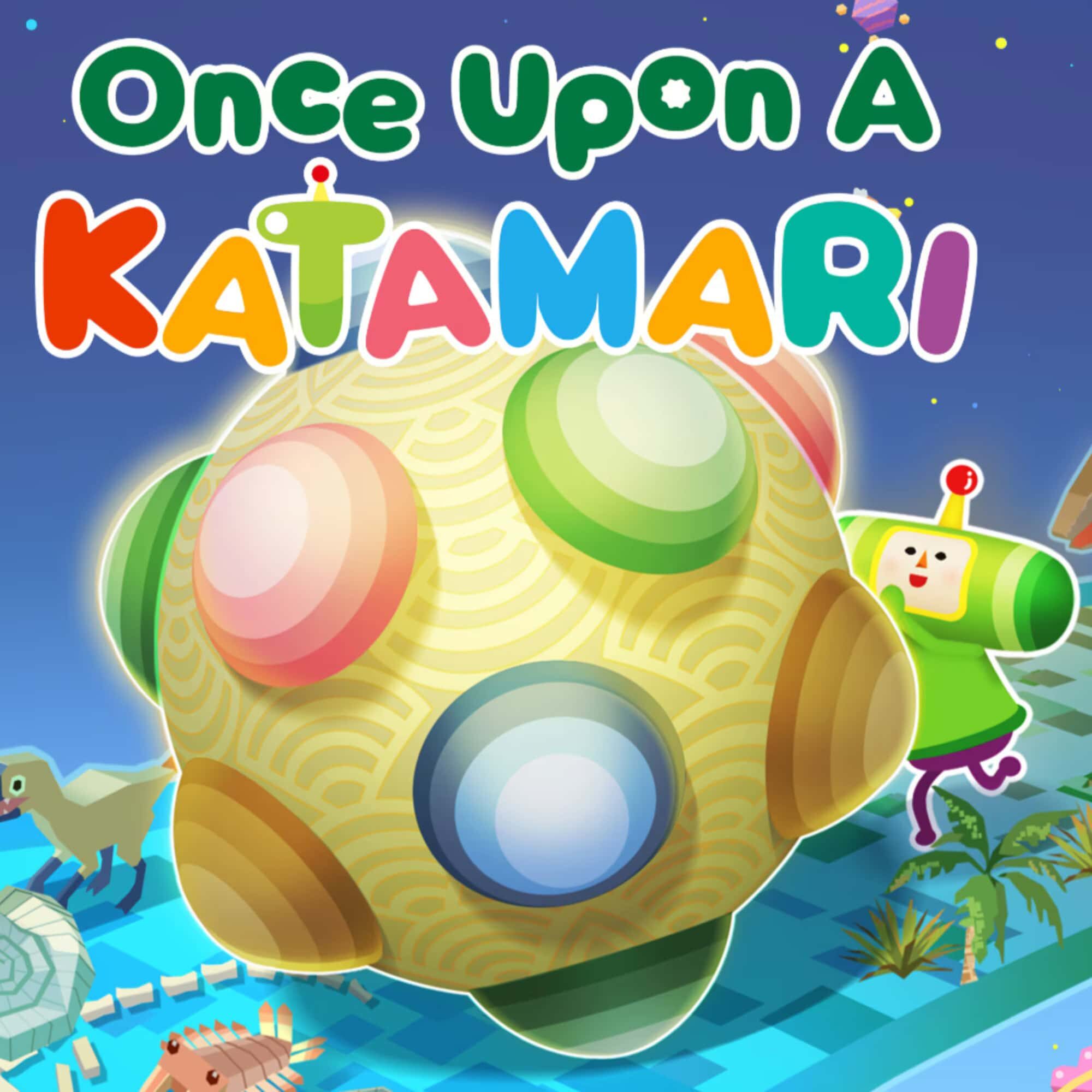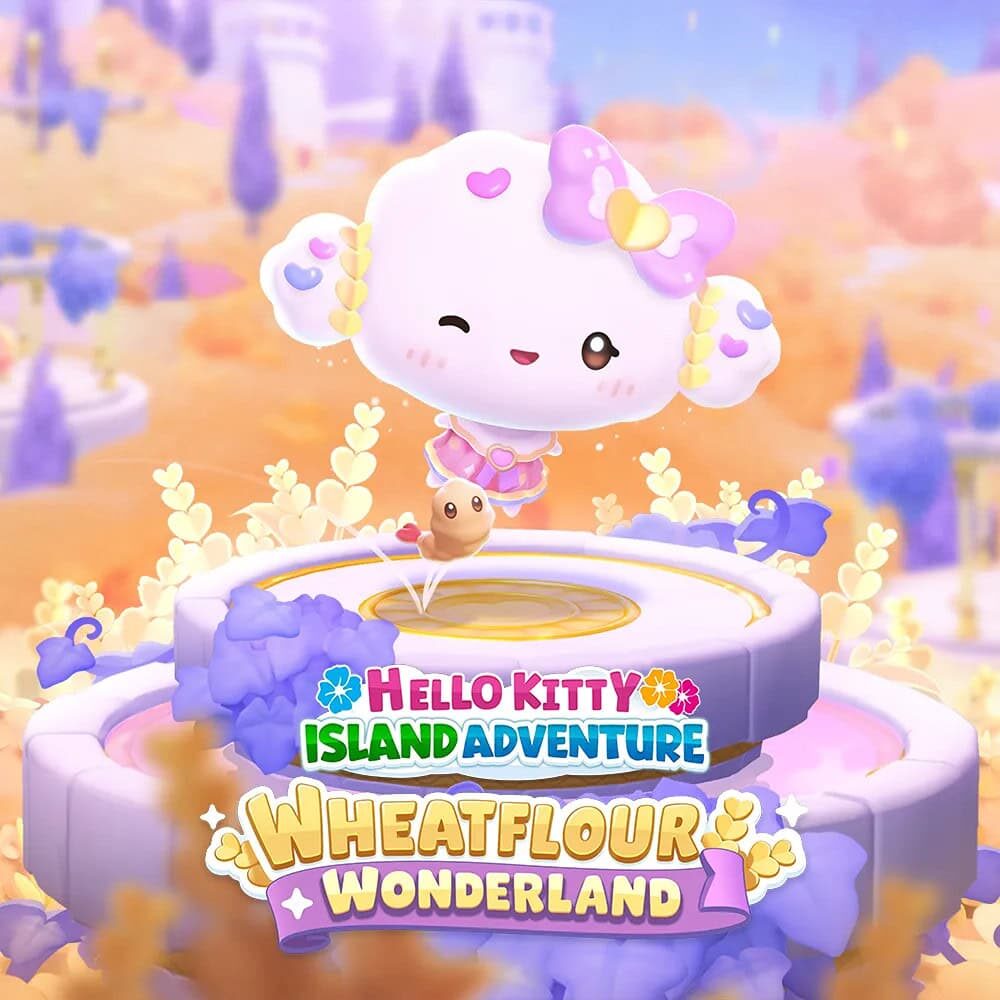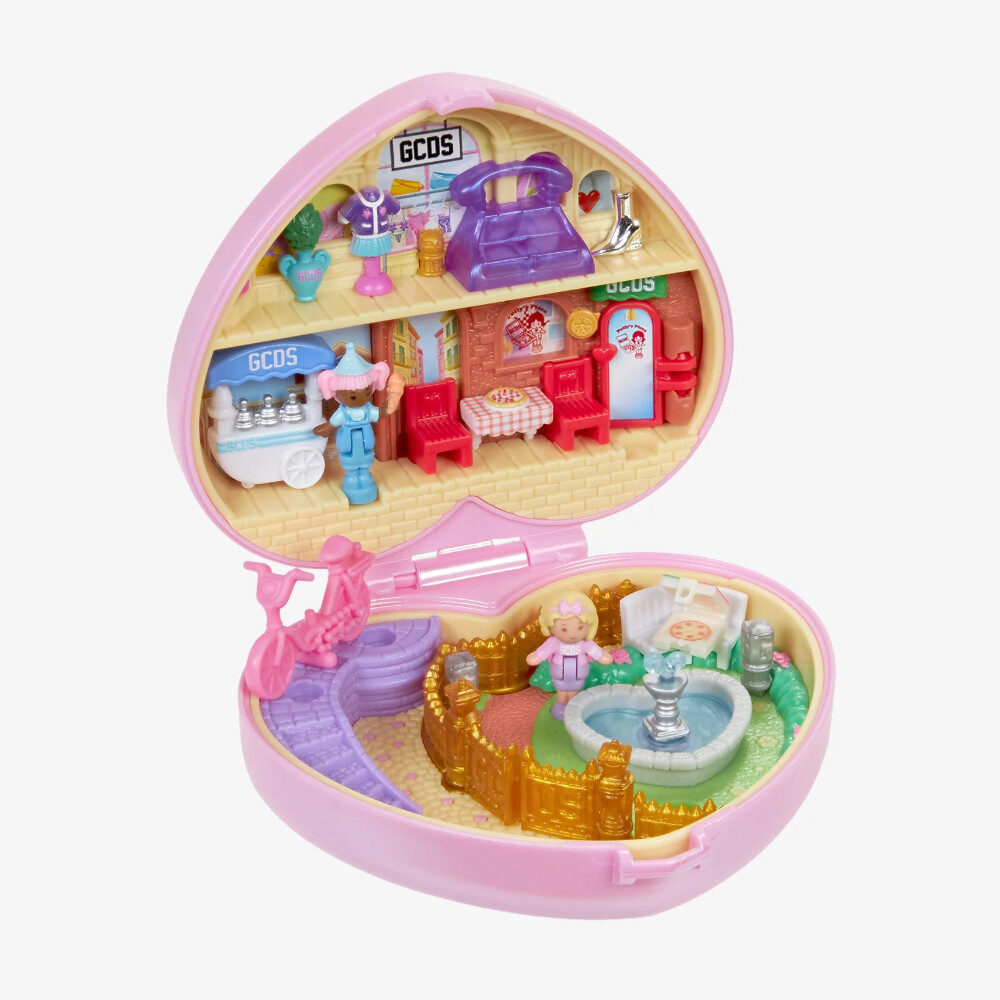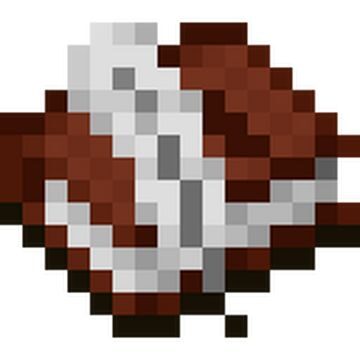
“And the Universe Said I Love You”: The Unexpected Philosophy of Minecraft
Written by Elise Georgeson You might have skipped past it, read it and misunderstood or thought a little deeper, but here’s our take on the iconic End Poem. Released in 2009, Minecraft is a staple of childhood, whose popularity has ebbed and flowed since its release 15 years ago. With its most recent resurgence happening during the COVID-19 lockdown, many players have revisited the game. It’s sandbox mechanics and world generation enables players to build a world to their own design – whether independently or with friends. With many people now revisiting the game as young adults rather than children,…
TEXT
Written by Elise Georgeson
You might have skipped past it, read it and misunderstood or thought a little deeper, but here’s our take on the iconic End Poem.
Released in 2009, Minecraft is a staple of childhood, whose popularity has ebbed and flowed since its release 15 years ago. With its most recent resurgence happening during the COVID-19 lockdown, many players have revisited the game. It’s sandbox mechanics and world generation enables players to build a world to their own design – whether independently or with friends. With many people now revisiting the game as young adults rather than children, Minecraft has revealed itself as deceptively philosophical.
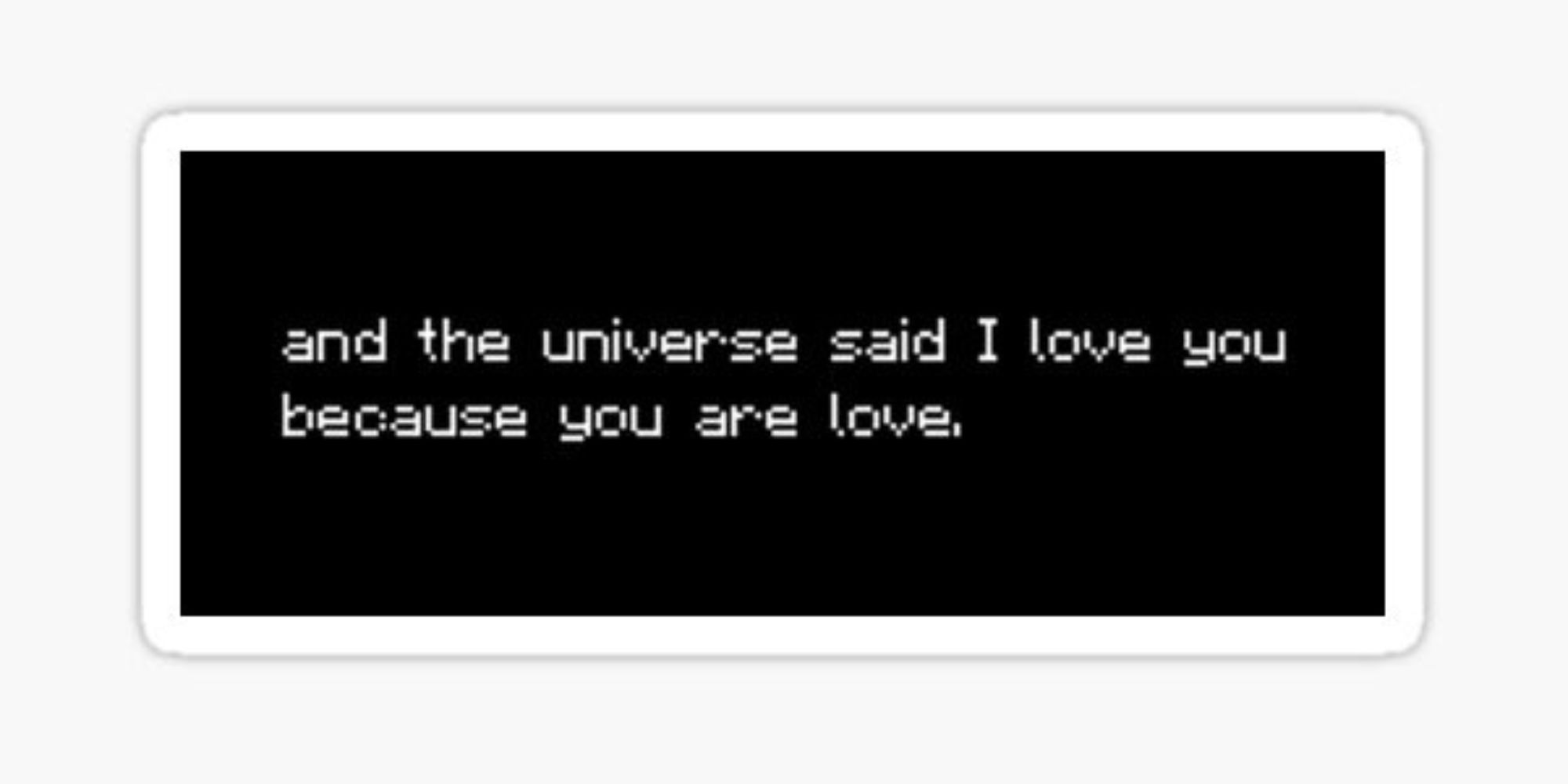
Minecraft’s lack of storyline means that there’s no real “end point” to the game. However, it does include a credits scene, featuring a poem that has become emotionally charged revisiting it years later. The ‘End Poem’ by Julian Gough presents a conversation between two unnamed narrators regarding you, the player after you defeat the Ender Dragon. Best known for the line “and the universe said I love you because you are love,” the poem delves into creation, philosophy, history, mortality and isolation.
The ‘End Poem’ reads like the very code of Minecraft reaching out to the player. In it, the poem describes the player’s life as “the long game” whereas the game itself is “the short game.” Gough grounds the players by reminding them of their life beyond the sandbox game, presenting a stark contrast to the lucid and existential themes the poem covers. Gough’s existentialism emerges through the comparison of the universe to code – resonating with the breakdown of identity boundaries between humans and machines seen in Donna Haraway’s Cyborg Manifesto. Comparing the player’s life to the binary structure of a video game inherently indicates a cyborg manifesto where humanity blends with technology.
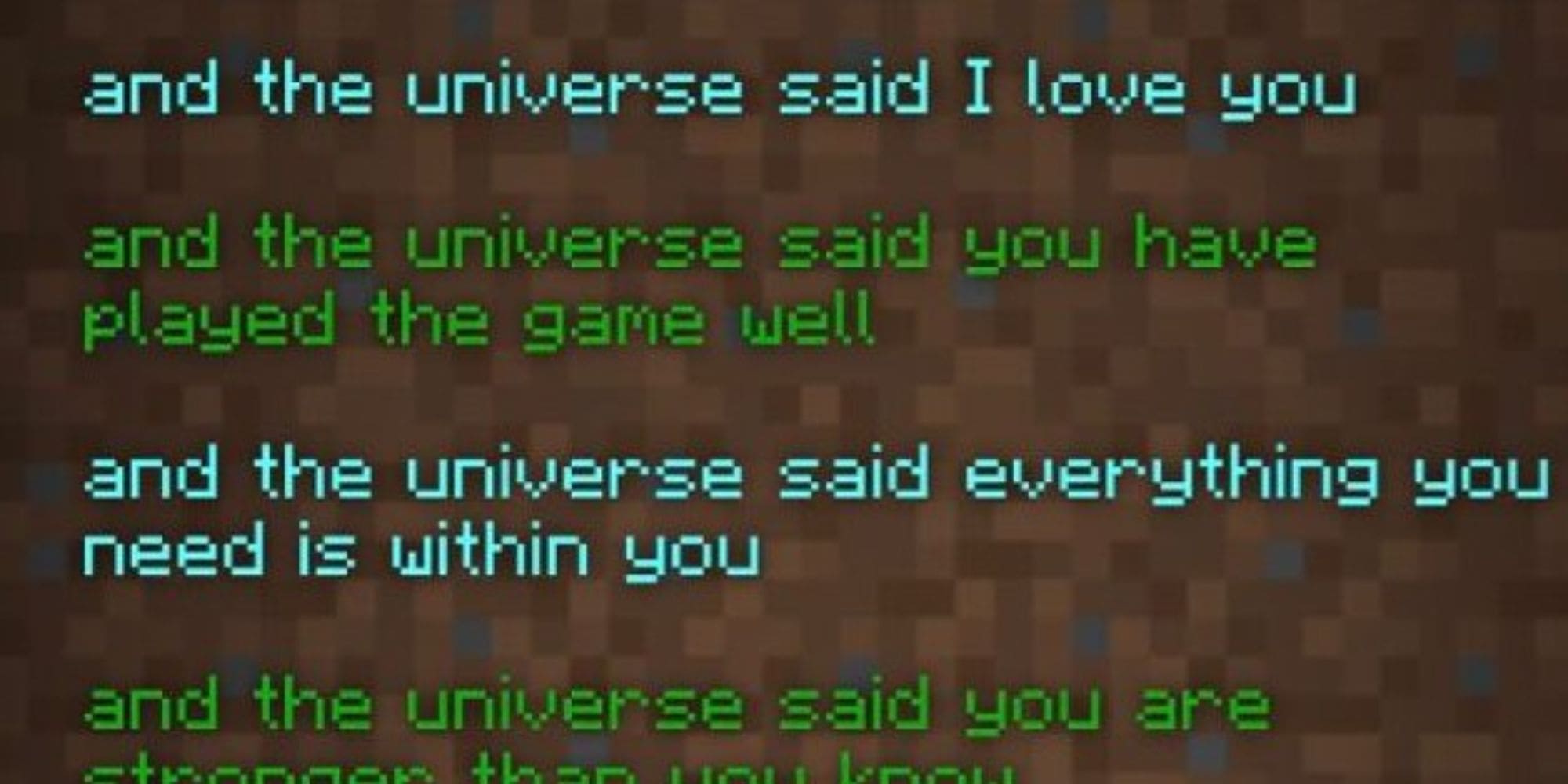
___STEADY_PAYWALL___
Despite the breakdown of rigid human/machine classifications, there is an undeniable source of humanity in Gogh’s poem. Minecraft presents an unexpectedly tender ending, especially in the following lines:
“And the universe said I love you
(…)
And the universe said I love you because you are love
And the game was over and the player woke up from the dream.
And the player dreamed again, dreamed better.
And the player was the universe.
And the player was love
You are the player.”
Minecraft further breaks down the dynamics between the player’s humanity and the natural world, posing the player as a godly figure – “the universe.” To an extent, the poem can be considered reflective of Minecraft as a sandbox game. The ability to build and play however the player deems fit almost sets them as an omnipotent figure. However, there’s a touching element that can be applied to the player’s own life. It acts as a reminder that the player is in control of their own life and dreams. Hence, the player is positioned as their own god in their life.
With this ideology interwoven in the philosophy of Minecraft, the resurgence of popularity during COVID-19 is expected. Its resurgence offered community despite being homebound. Further, Gough’s poem unveils the comforting sense of control we all have over our lives – something that was increasingly difficult to feel as the sociopolitical sphere dramatically changed in COVID’s wake.
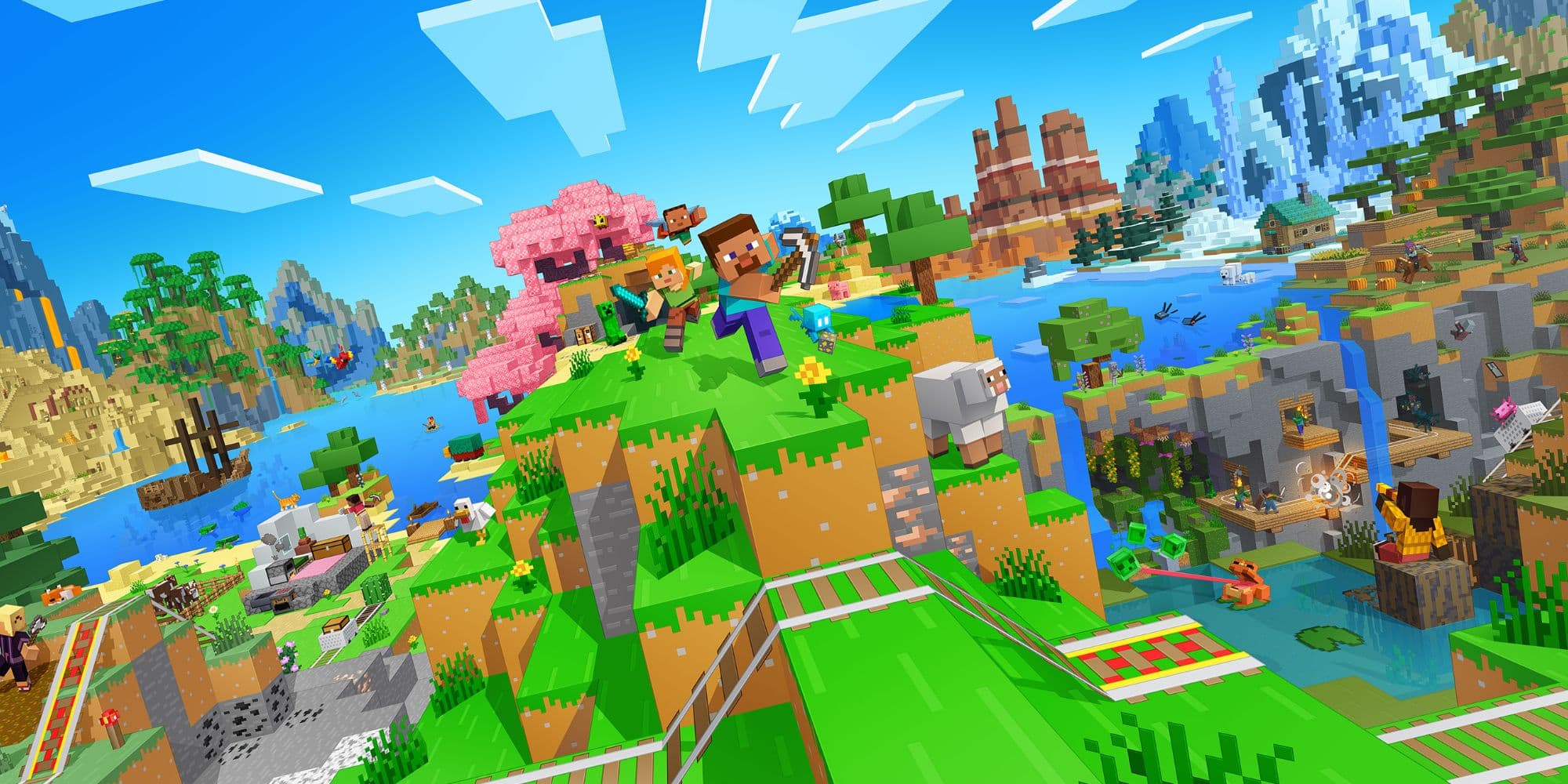
Gough’s poem makes the player an infinitesimal speck in the grand scheme of things. Cyclical representations of humanity in Minecraft’s Cyborg Manifesto emerge through comparing mortality to “a sourcecode a billion years old.” Despite this indication of repetition in a vast world, the poem also places the player as the most significant thing in their life, hence “the universe.” For those feeling lost, the unexpected nostalgia and depth of Minecraft offers a comforting sense of control. The ‘End Poem’ can therefore be considered a discussion of the undercurrent of love within a universal setting.
Written by Elise Georgeson
You might have skipped past it, read it and misunderstood or thought a little deeper, but here’s our take on the iconic End Poem.
Released in 2009, Minecraft is a staple of childhood, whose popularity has ebbed and flowed since its release 15 years ago. With its most recent resurgence happening during the COVID-19 lockdown, many players have revisited the game. It’s sandbox mechanics and world generation enables players to build a world to their own design – whether independently or with friends. With many people now revisiting the game as young adults rather than children, Minecraft has revealed itself as deceptively philosophical.

Minecraft’s lack of storyline means that there’s no real “end point” to the game. However, it does include a credits scene, featuring a poem that has become emotionally charged revisiting it years later. The ‘End Poem’ by Julian Gough presents a conversation between two unnamed narrators regarding you, the player after you defeat the Ender Dragon. Best known for the line “and the universe said I love you because you are love,” the poem delves into creation, philosophy, history, mortality and isolation.
The ‘End Poem’ reads like the very code of Minecraft reaching out to the player. In it, the poem describes the player’s life as “the long game” whereas the game itself is “the short game.” Gough grounds the players by reminding them of their life beyond the sandbox game, presenting a stark contrast to the lucid and existential themes the poem covers. Gough’s existentialism emerges through the comparison of the universe to code – resonating with the breakdown of identity boundaries between humans and machines seen in Donna Haraway’s Cyborg Manifesto. Comparing the player’s life to the binary structure of a video game inherently indicates a cyborg manifesto where humanity blends with technology.

___STEADY_PAYWALL___
Despite the breakdown of rigid human/machine classifications, there is an undeniable source of humanity in Gogh’s poem. Minecraft presents an unexpectedly tender ending, especially in the following lines:
“And the universe said I love you
(…)
And the universe said I love you because you are love
And the game was over and the player woke up from the dream.
And the player dreamed again, dreamed better.
And the player was the universe.
And the player was love
You are the player.”
Minecraft further breaks down the dynamics between the player’s humanity and the natural world, posing the player as a godly figure – “the universe.” To an extent, the poem can be considered reflective of Minecraft as a sandbox game. The ability to build and play however the player deems fit almost sets them as an omnipotent figure. However, there’s a touching element that can be applied to the player’s own life. It acts as a reminder that the player is in control of their own life and dreams. Hence, the player is positioned as their own god in their life.
With this ideology interwoven in the philosophy of Minecraft, the resurgence of popularity during COVID-19 is expected. Its resurgence offered community despite being homebound. Further, Gough’s poem unveils the comforting sense of control we all have over our lives – something that was increasingly difficult to feel as the sociopolitical sphere dramatically changed in COVID’s wake.

Gough’s poem makes the player an infinitesimal speck in the grand scheme of things. Cyclical representations of humanity in Minecraft’s Cyborg Manifesto emerge through comparing mortality to “a sourcecode a billion years old.” Despite this indication of repetition in a vast world, the poem also places the player as the most significant thing in their life, hence “the universe.” For those feeling lost, the unexpected nostalgia and depth of Minecraft offers a comforting sense of control. The ‘End Poem’ can therefore be considered a discussion of the undercurrent of love within a universal setting.
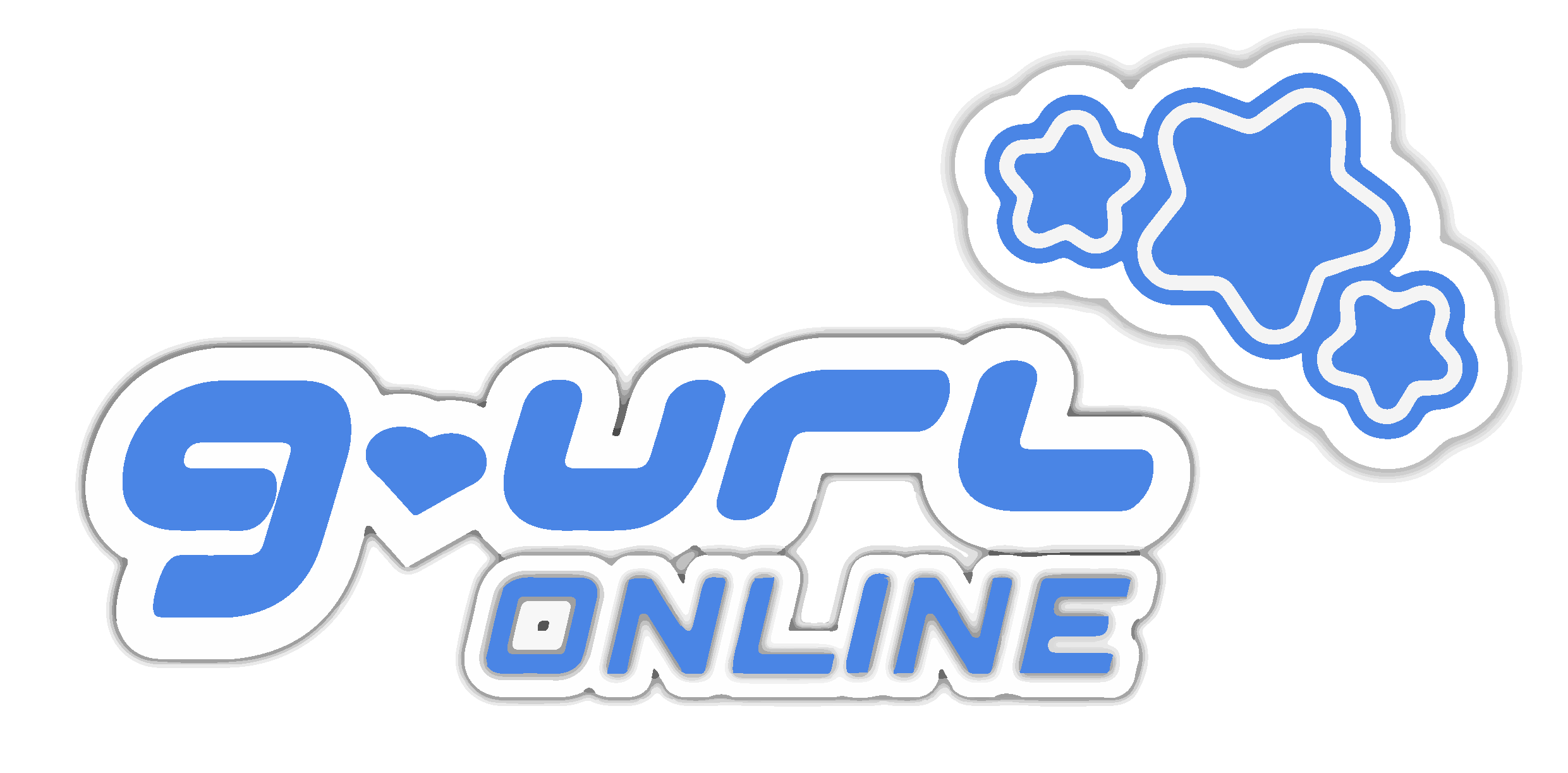
Enjoyed this story? Support independent gaming and online news by purchasing the latest issue of G.URL. Unlock exclusive content, interviews, and features that celebrate feminine creatives. Get your copy of the physical or digital magazine today!


